“In the District, no one gets rich”, guarantees Diogo Brás, referee and member of the António de Matos Referee Nucleus, in the Algarve. These words were uttered in one of those meetings where the members of the Nucleus meet, every Monday, in a kind of borrowed cafe, endowed with poor light and poor conditions.
“These sessions essentially serve to re-evaluate our mistakes and knowledge. We discuss plays, events, study together, etc… it is also a way for us to live together”, explains Pedro Sancho, president of the Nucleus.
“As the possibility of watching our own matches is limited, we analyze many professional football matches, with the help of a UEFA application”, reveals Pedro Sancho.
“The level of district refereeing is rising in terms of quality, although the number of referees is too small to face the number of existing matches”, says João Tangarrinha, referee for 13 years.
In other words, referees need more colleagues, to respond to all matches over the weekend and even in the middle of the week. “There are referees who whistled eight games in one weekend”, reveals Pedro Sancho soon after.
“To be a referee, you have to have a great taste for football and a lot of team spirit, you need to take a course at the Algarve Football Association (from January to March) and you have to complete the practical internship, but many are not for that” , explains Diogo Brás.
In the middle of the conversation comes the money issue and the time they do not devote to their family. “For the responsibility we have, it doesn't pay. I do this for the love of refereeing and because I'm trying to move up in the division”, explains Diogo Brás.
Luís Pires, graduated in Sports Management and used to routine for some years, regrets above all the time he cannot spend with his family: “The games and training, in terms of time, bring harm to the family, but as they already are years in this area of sport, the family is already aware of the situation”.
The next day, at 19 pm, at the Athletics Track of Faro, there was referee training, which the reporter was invited to follow.
In the dressing room, it was the day for the referees to weigh themselves. Rui Belo, physical trainer, took a small scale from his backpack so that everyone could weigh themselves, and went on to explain: “the fat mass will vary depending on the category you are in. In the category where we are, there is no such requirement for fat mass, but in the League you have to be below 12% and in the Federation below 14%”.
Once on the track, ready to train, after a quick conversation with the coach about what they were going to do, the referees began to run ten minutes to warm up.
After that time, there were exercises for flexibility of reaction, change of pace, strength and the essential stretches to protect against injuries.
Thursday was a new day of training, at the same time, in the same place, because the conditions are not met for it to be done at the Estádio do Algarve.
"Today will be a training, but soft, we are going to do dynamic joint mobilization, running technique, sprint exercises and test simulation”, says Rui Belo, the coach.
“Look, if you want, I'll have a game in Guia this Saturday afternoon, if you like I'll catch you and go with us”, informed João Tangarrinha. And so did the reporter.
“So Flávio, ready to be a referee for a day?”, the referees asked. It would be an important game, not only because of the teams, but also because the main referee, João Tangarrinha, was going to be evaluated.
Despite this, the referees “had left the pressure at home”, as they say in the football world. The game, at Arsénio Catuna Stadium, would pit Guia FC against LGC Moncarapachense.
“Well, that's how it is, folks: Isidro will be in the AA2 area, on the public side, and you will be on the AA1 side of the substitutes”, explains Tangarrinha. This “you”, referred to by the main referee, was for João Ruivo, the assistant chosen for that game.
For fifteen to twenty minutes, the game plan was explained, how the referees should act from the start, which players to pay special attention to, turf conditions, what equipment both teams would use, etc.
With this little meeting over, it's time to really see the state of the pitch. “Everything seems to be in order”, says Isidro Moreno, immediately receiving confirmation from the other two colleagues. In this, they went to change clothes to warm up.
“It's time guys, let's do our best! Can you hear me?” shouted João Tangarrinha, putting his hand to his left ear to make sure everything was ready.
Then blew the whistle that dictated the start of the match, which put everyone and everything to the test and with nerves on edge. After 45 minutes, it was time for the break.
The refereeing team entered the dressing room, still discussing some moves that occurred in the first part of the match. “I think you were right there”, “I had some doubts in this move…”, they argued, always focused on what the game was.
Continuing to the second half, with at least one move of great doubt, which resulted in a penalty for the visiting team, the referee team discussed among themselves: "Do you think the foul was inside?". “For me, I think you did well in the decision”, say João Ruivo and Isidro Moreno, assistant referees. There were brief moments to debate and reflect on what happened.
On Wednesday, the day of receiving the evaluation of the game, it was confirmed that the episode of the fault that generated so many doubts among the referees would have been confirmed.
Until, at a certain point, there is a tap at the door. He was a representative of the intervening teams, so that the “mister referee would fill in the necessary documentation about the game”.
After completing a lot of paperwork, it was time to take a shower and head towards the house, always with a calm and lively atmosphere. Another game done!
Photos: Flavio Costa | Ethic_Algarve
Note: Article and photographs by Flávio Costa, a student at ETIC_Algarve, in the scope of Journalistic Writing Techniques and Photojournalism, of the Professional Photography course
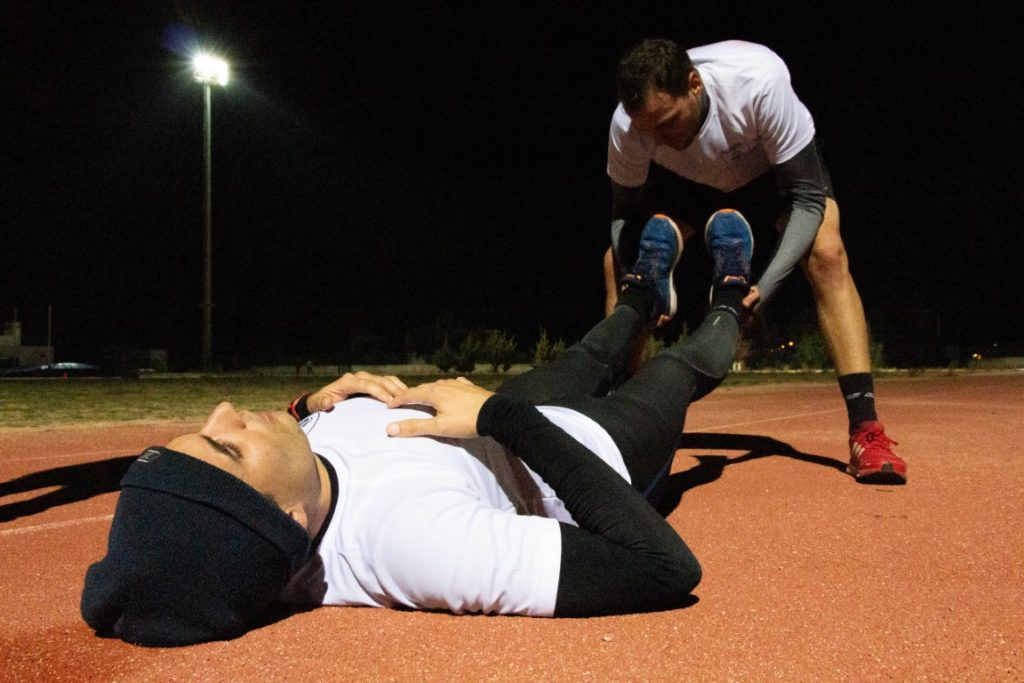
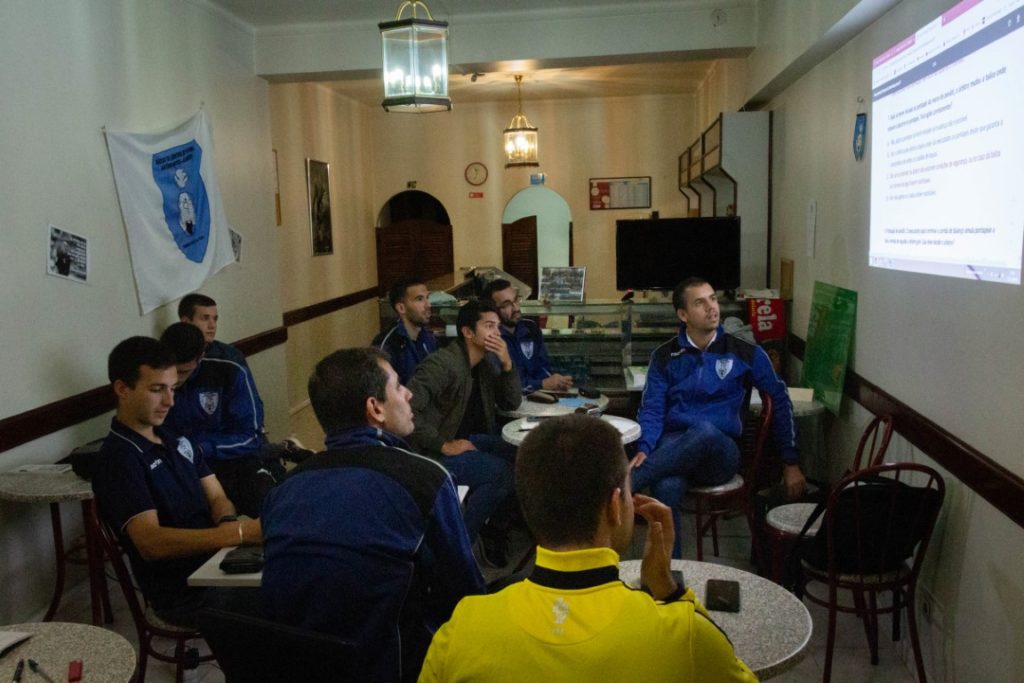
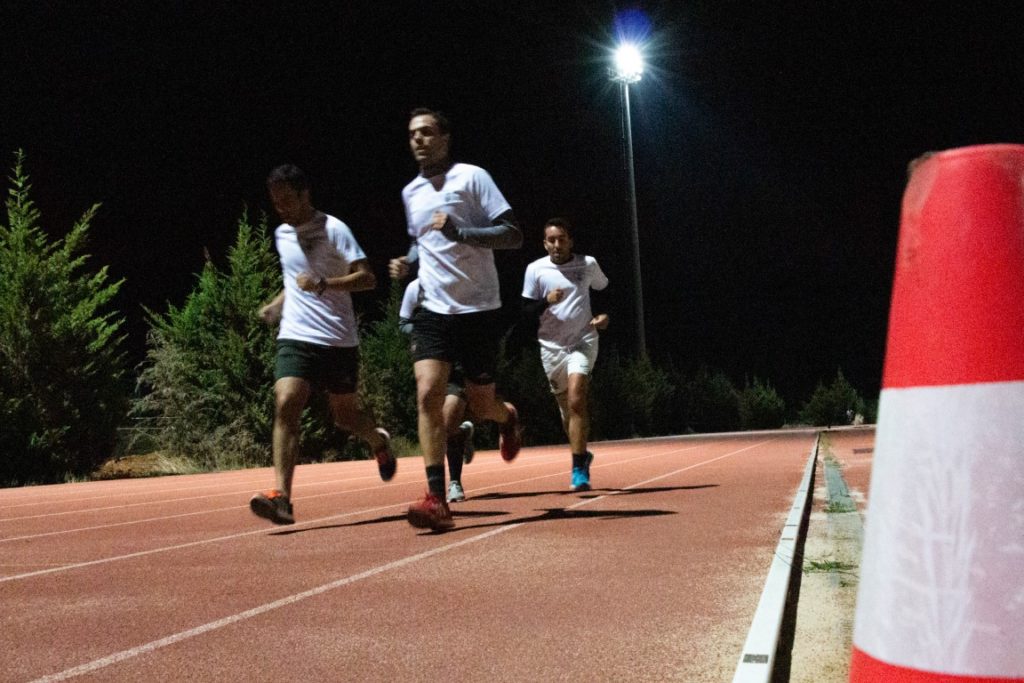
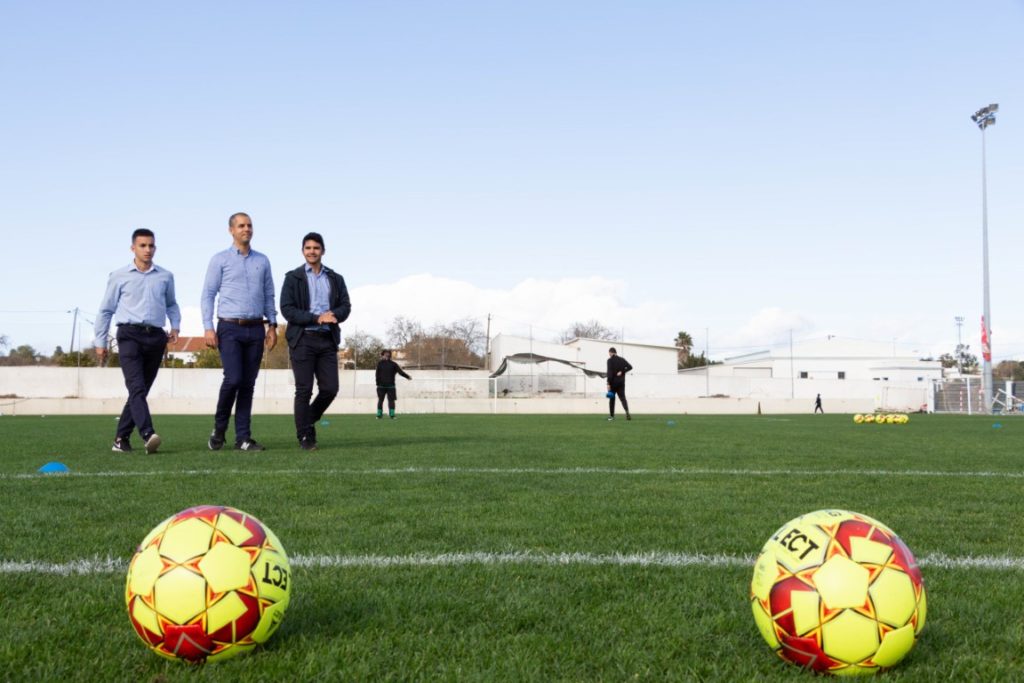
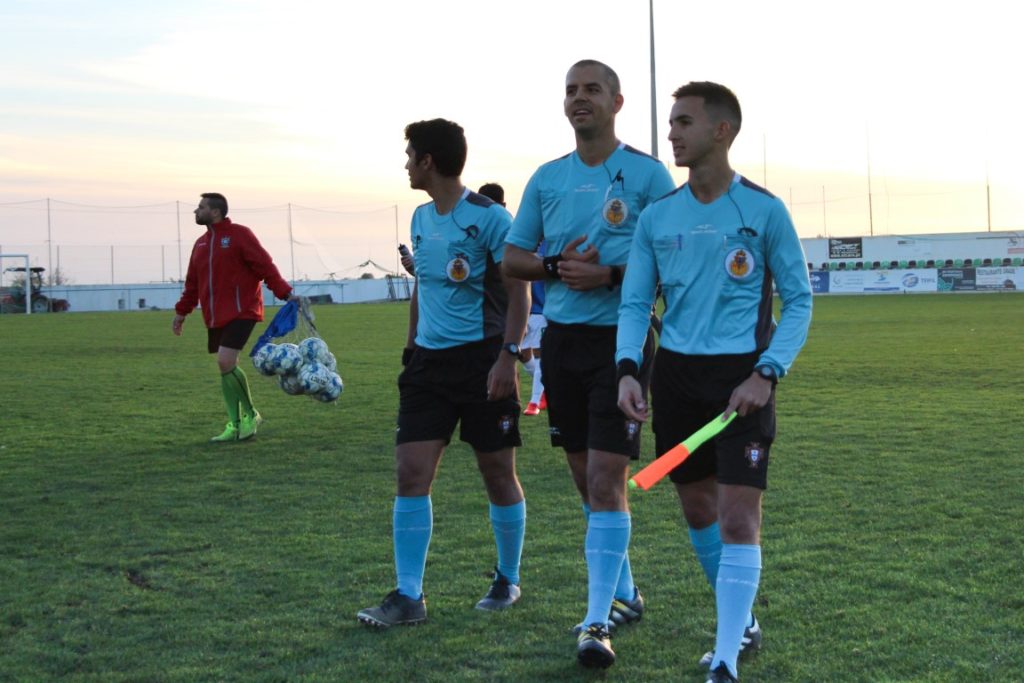
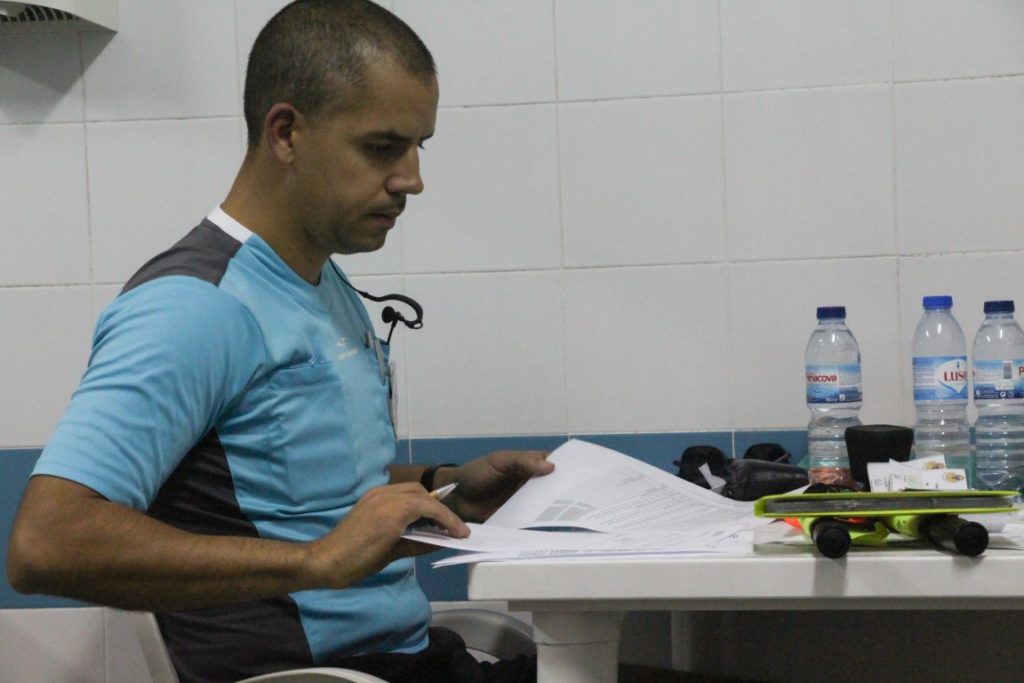
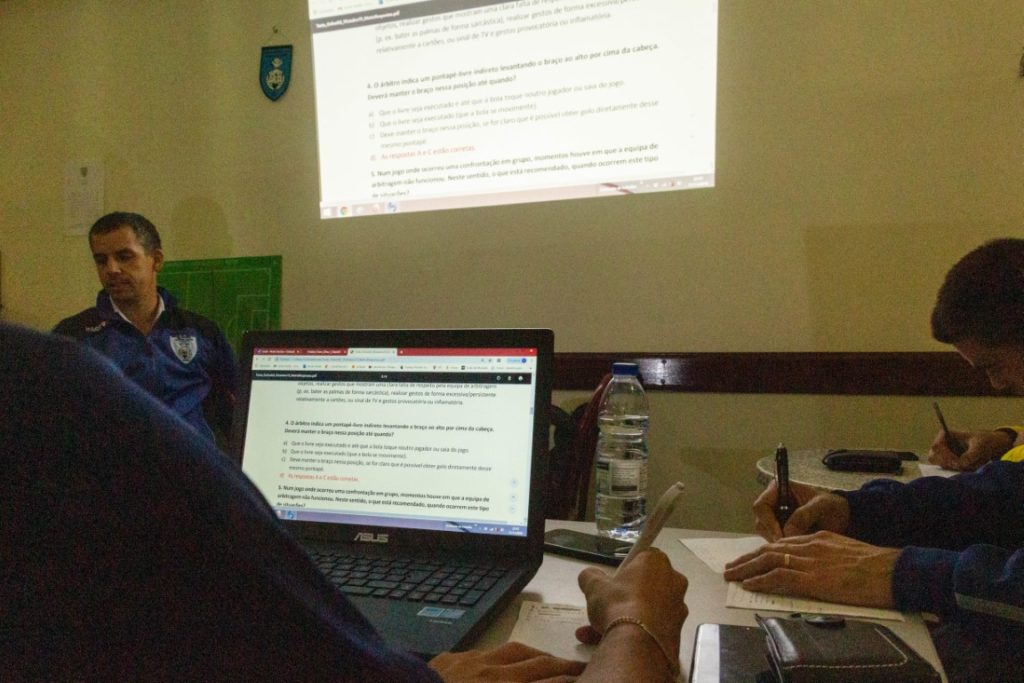
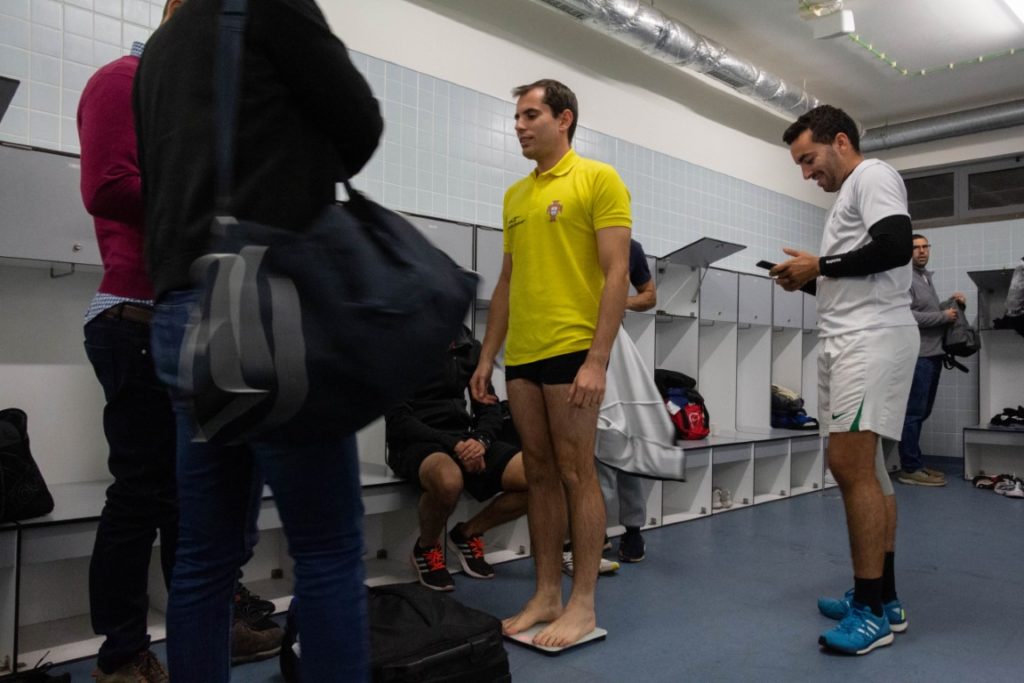
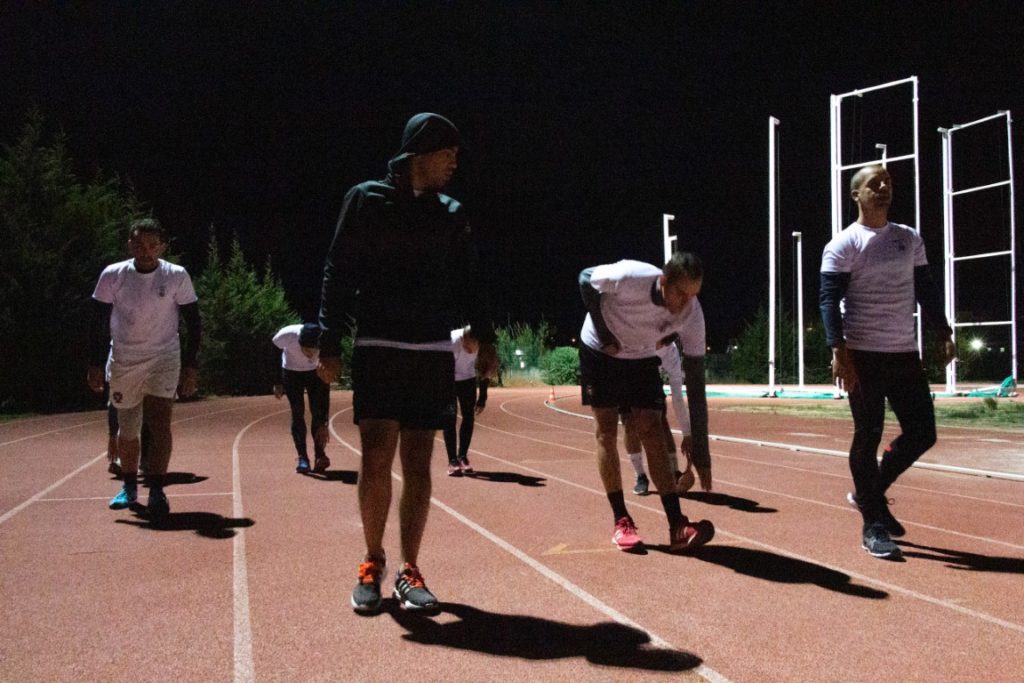
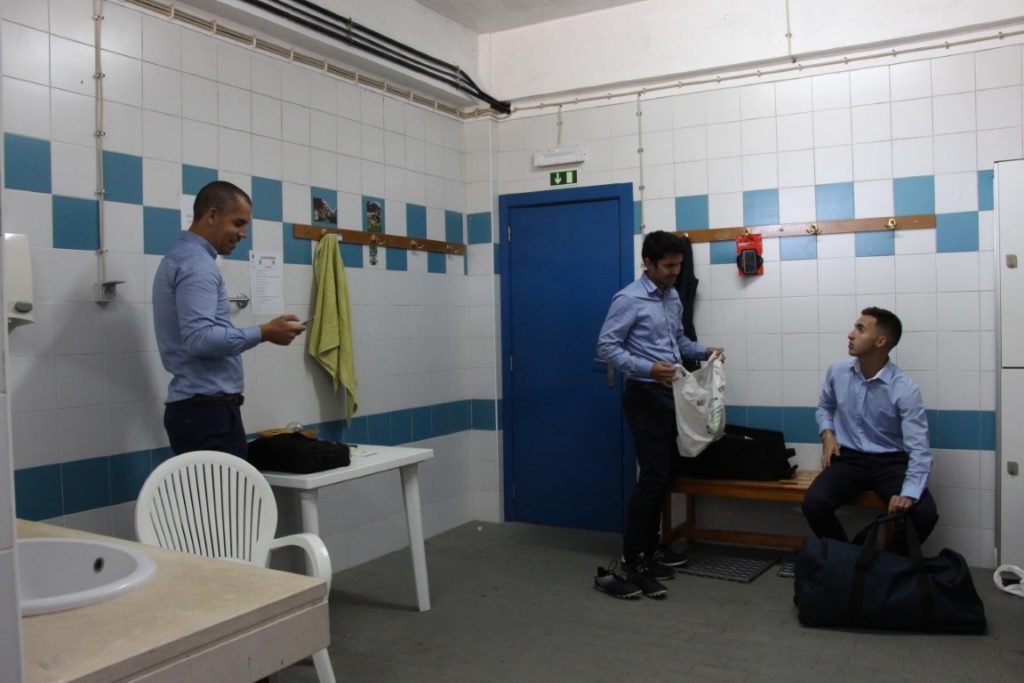
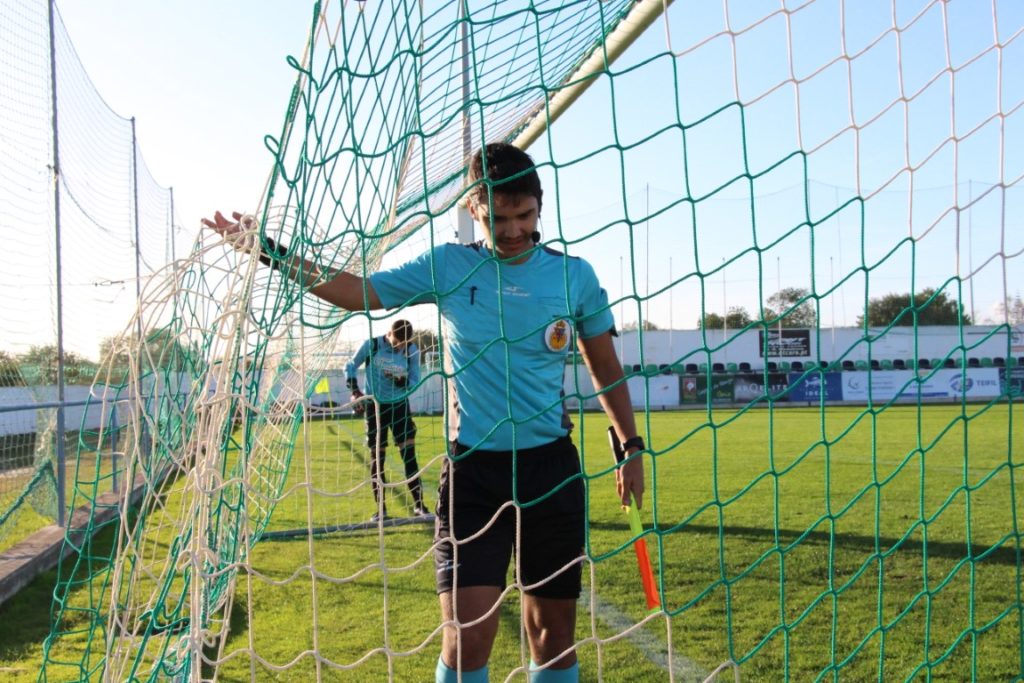
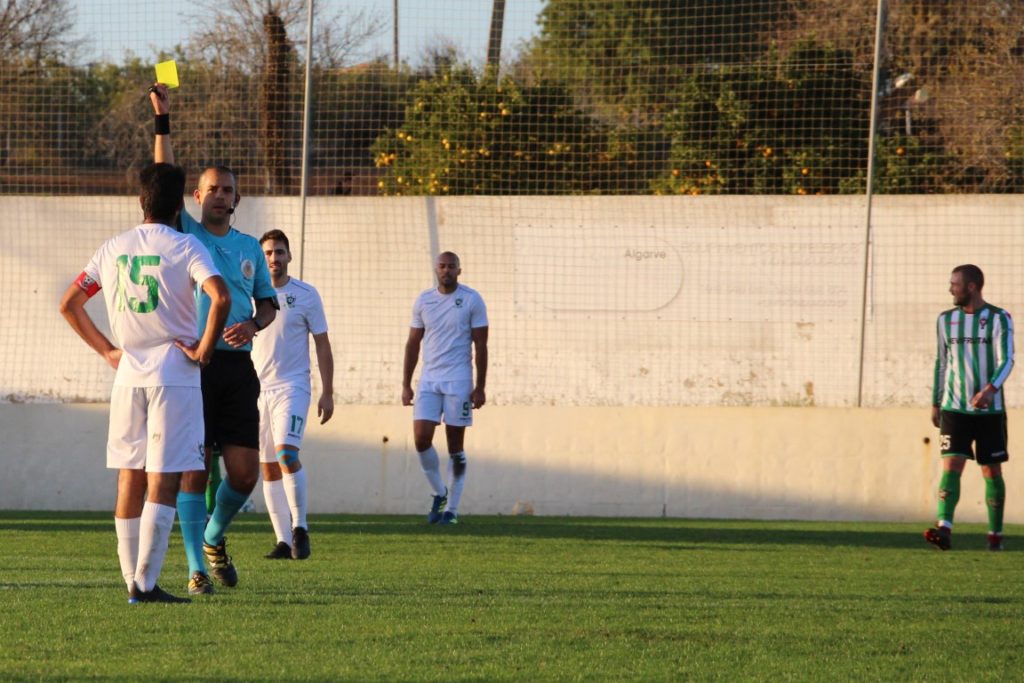
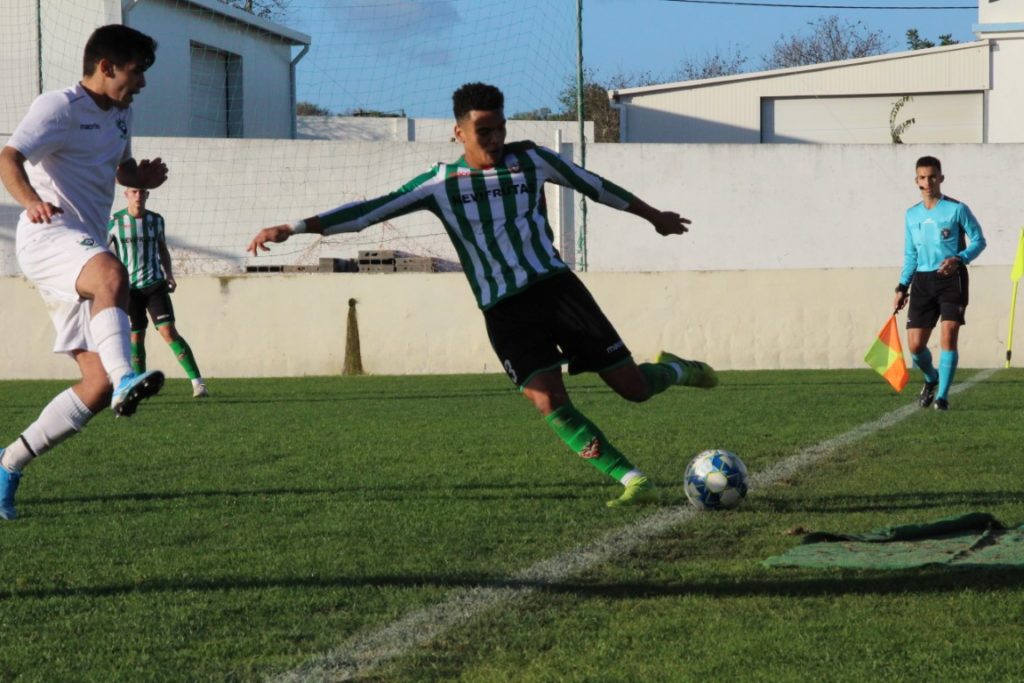
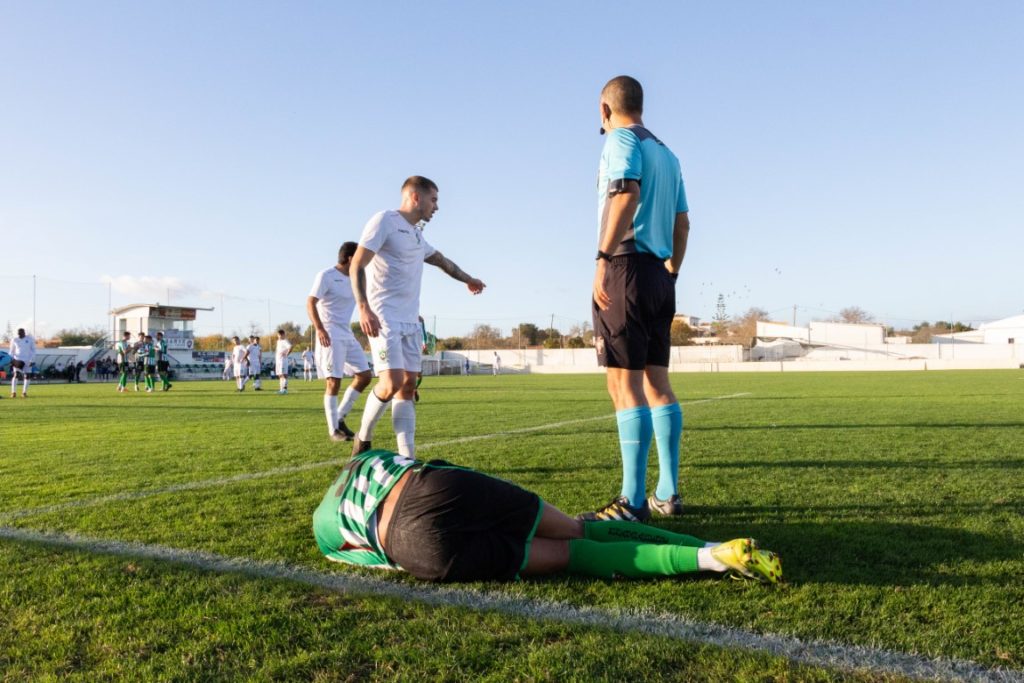


















Comments